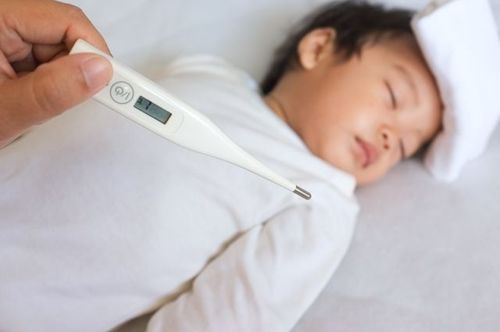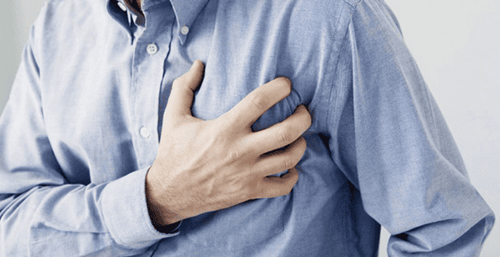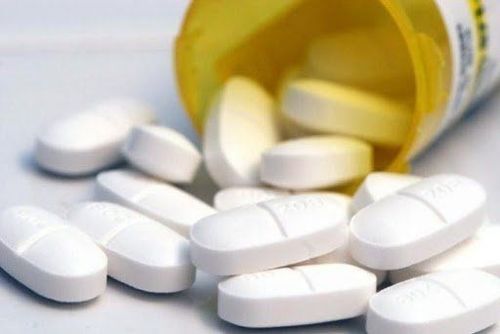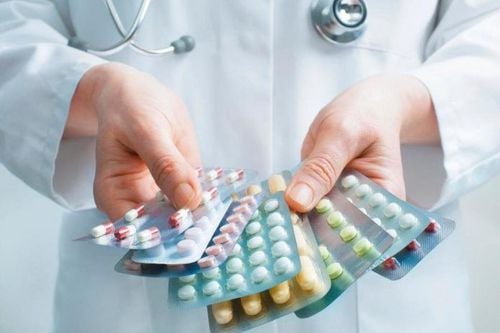This is an automatically translated article.
Vasopressors are drugs that play a very important role in cardiovascular emergency. To effectively use vasopressors, pharmacists need to understand the pharmacological effects of the drugs and prescribe them appropriately in specific situations.
1. What are vasopressors?
Vasopressors are drugs with vasoconstrictor effects, used in critically ill patients in the emergency department. Vascular resistance is an important factor affecting arterial pressure (MAP), vasopressors act directly on this factor, so are widely used for cardiovascular support (MAP = supply). cardiac output x vascular resistance).
Vasopressors are used in cardiovascular emergencies for the following purposes:
Restore tissue perfusion and increase oxygen delivery to patients in shock. Helps to raise average blood pressure thereby preserving cardiac output, enhancing perfusion of organs Helps to increase stroke volume, cardiac index without affecting oxygen consumption and metabolic acidosis.
2. General principles when using vasopressors in cardiovascular emergency
Only use vasopressors in cardiovascular emergencies, after having compensated enough circulating volume but blood pressure still does not improve. The volume and rate of infusion for the patient were calculated based on central venous pressure and fluid testing.
It is necessary to explore and assess the patient's hemodynamic status to choose the appropriate vasopressor drug: drugs that increase myocardial contractility, drugs that act on myocardium and peripheral vasoconstrictors, etc. During treatment, continue to monitor hemodynamic parameters to adjust the dose or change drugs appropriately.
Always start vasopressor therapy with a low dose, then increase the dose according to the patient's response to achieve optimal blood pressure 90mmHg, urine output >50-100ml/hour. Do not stop or reduce the dose of cardiovascular emergency medicine suddenly, but gradually reduce the dose to a low dose, then stop completely.
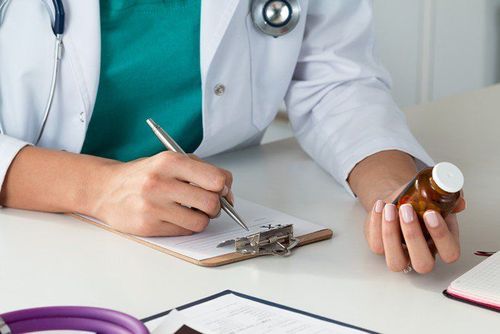
Thuốc vận mạch trong cấp cứu tim mạch cần được sử dụng theo đúng quy tắc
3. Commonly used vasopressor drugs
3.1. Vasoconstrictor 3.1.1. Adrenalin (Epinephrine) Heart Emergency Medicine Adrenalin stimulates both alpha and beta receptors, but has strong beta-agonist effects. The effect of the vasopressor Adrenaline varies greatly with the dose and the body's compensatory reflexes. Adrenalin is the basic drug in the emergency treatment of anaphylaxis due to its effects on myocardial contractility, vasoconstriction, decreased vascular permeability, and bronchodilator. Adrenaline is also used in the emergency of circulatory arrest to restore cardiac activity by increasing myocardial contractility, increasing conduction and peripheral vascular effects.
Despite the risk of increased heart rate and arrhythmia, adrenaline is still highly effective when used in combination with Dopamine, in case Dopamine does not restore optimal blood pressure. Use caution when administering adrenaline to patients with coronary insufficiency.
3.1.2. Noradrenaline (Norepinephrine) Noradrenaline acts primarily on alpha adrenergic receptors causing strong vasoconstriction. To avoid the risk of the vasopressor Noradrenalin causing excessive vasoconstriction, reducing the perfusion to the organs, it is necessary to compensate for the volume of circulation before taking the drug. Noradrenalin also has the effect of increasing myocardial contractility, but the vasoconstrictor effect is still more prominent. Therefore, noradrenalin is only used in combination in the emergency of congestive heart disease with excessive vasodilation, after the use of other vasopressors is ineffective.
3.1.3. Dopamine Dopamine directly stimulates alpha1, alpha2 and beta1 - adrenergic receptors, and indirectly releases noradrenalin. Depending on the dose used, Dopamine will stimulate alpha or beta receptors. Because of its effectiveness in raising blood pressure and few side effects, dopamine is often the drug of first choice in the treatment of cardiovascular collapse.
3.2. Dobutamin Dobutamine is a synthetic catecholamine, acting mainly on beta 1, beta 2 and alpha effect in clinical is not clear. Dobutamine has the effect of myocardial contractility, reducing ventricular filling pressure, reducing pulmonary capillary pressure when this pressure is high seen in heart failure without hypotension. Dobutamine is indicated to increase myocardial contractility in acute heart failure (due to cardiogenic shock, myocardial infarction), septic shock. Dobutamine can be used in the treatment of chronic congestive heart failure but must be used with caution and not for long-term use.
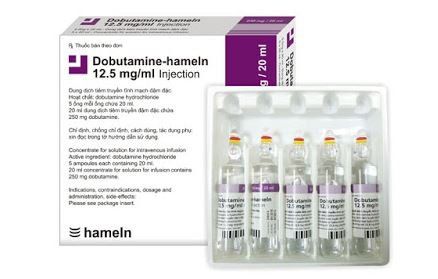
Thuốc trợ tim Dobutamin cần được sử dụng thận trọng trong điều trị tim mạch
In order to protect cardiovascular health in general and detect early signs of myocardial infarction and stroke, currently Vinmec International General Hospital has developed a Cardiovascular Screening service through which it can be detected. detect cardiovascular problems at an early stage, through modern diagnostic tests and imaging methods. The package is for all ages, genders and is especially essential for people with risk factors for cardiovascular disease.
The examination and treatment is always performed by a team of highly qualified doctors from many major hospitals across the country. Therefore, customers can feel secure in choosing the hospital as the address to visit for themselves and their families.
Please dial HOTLINE for more information or register for an appointment HERE. Download MyVinmec app to make appointments faster and to manage your bookings easily.





